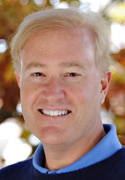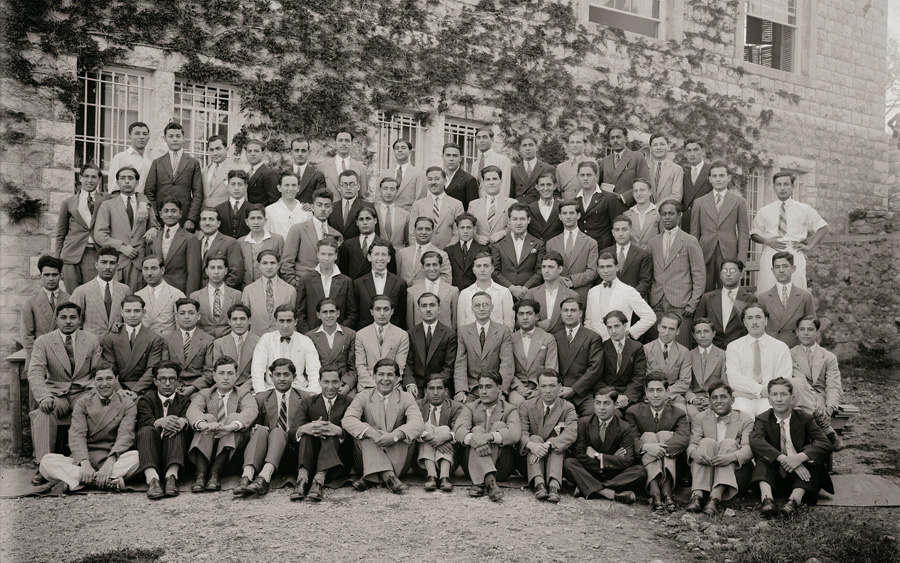
The Interviewees

Interview with Brian VanDeMark - February 2022
1- People may assume that America’s early influence in the Levant and wider Middle East was built through trade and the projection of national power and territorial ambitions, as was the case with the European powers. But as we learned from your talk on January 13th 2022 to the Levantine Heritage Foundation, it began quite differently through the missionary movement in the 1800s. What were the key factors behind this? Did America have any significant trade interests or governmental missions in the region before the first missionaries arrived? Or did these follow the success of the missionaries?
The United States conducted limited trade in the Mediterranean region from the beginning of the republic, and the American Navy intervened in the Barbary Wars of the early 1800s, but U.S. involvement in the Middle East remained quite modest until the arrival of the first American missionaries to the Levant in the 1820s. They came in the name of American mission, nationalism, and idealism, primed with ethnocentric humanitarianism typical of nineteenth-century Westerners. But unlike European missionaries of the period, they arrived without military backing or government support.
2- The Syrian Protestant College and then as the American University of Beirut (AUB) demonstrated the power of education for individuals from different faiths and cultural backgrounds in the Middle East. What was the “competition” in higher education in the 19th and early twentieth centuries? How did they compare to AUB in their achievements?
After the founding of the Syrian Protestant College, a fierce (and decidedly un-Christian) competition developed between American Protestants and French Catholics who operated the rival Université Saint-Joseph. Unlike the USJ, the SPC opened its doors to all Middle Eastern creeds, provided a practical education not only to offspring of the elite but also to deserving indigent students, and the language of instruction was Arabic--not English. This shifted to English as the diversity of courses and number of students increased.
3- Are the principles upon which AUB was founded and developed still relevant today in the Middle East? Is AUB still seen as a role model that can evolve further?
AUB’s guiding principles of individual freedom wedded to civic responsibility, intercultural engagement, mutual regard for diverse points of view, uninhibited but orderly exchange of ideas, and independent thinking in the service of a better future are arguably more urgent than ever in today’s troubled Middle East. The possibilities that AUB embodies are still alive--if people are willing to seize them.
4- People with multinational, multicultural backgrounds are often fascinated and sometimes even conflicted by the question of their identity and where they belong. How would you describe AUB’s identity and that of its founders and successive leaders? Were they American first or did they belong more to Beirut, the Levant or even to the personality of the university itself?
The American missionaries who founded AUB came to the Middle East full of superior preconceptions, resolved to remake the region in America’s image. Hard and sometimes bitter experience taught them a very different wisdom. They stopped condescending to Middle Easterners and learned to engage them on their own terms in their own land, helping them to develop their own potential and thereby improve the lives of all inhabitants of the region. That is when the leaders of AUB began to have a constructive and enduring impact.
5- How did your connection to AUB start? What influenced you to write your book “American Sheikhs: Two Families, Four Generations and the Story of America’s Influence in the Middle East”? Are there any particular experiences or memories you could share to illustrate?
I became interested in AUB following the 2003 American invasion of Iraq. Amid all the images of destruction, I wanted Americans and Middle Easterners to know the other story of U.S. involvement in the Middle East--the one that does not conform to prevailing narratives centering on oil, Israel, and security. It is the story of America giving to the region, not taking from it.
6- You have been connected to Beirut and its communities for many years, including those families who migrated in the past to that region for trade opportunities. Would you be open to widening your investigations by recording the stories of the non-academic families who came to contribute their skills to Lebanon? Is there anything the Levantine Heritage Foundation can do to support your legacy and your future studies?
I would be open to recording the stories of non-academic families who contributed their skills to Lebanon. How the Levantine Heritage Foundation might help me in this regard is something we can explore together in days to come.
Interview conducted by Quentin Compton-Bishop

